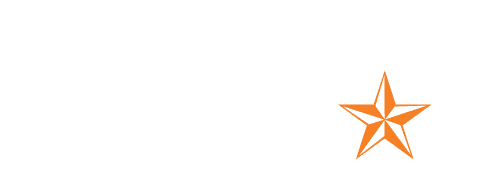About Biomedical Engineering - Bachelor's (b.s.) in University of Texas At Arlington
Our program produces graduates who possess a broad-based bioengineering education to successfully work in a wide range of professional settings, exhibit professional growth throughout their careers, take on increasing professional responsibilities, pursue life-long learning, and demonstrate success and leadership in the practice of engineering by contributing to the economic well-being of their employers and society.
ABOUT THE PROGRAM
Students in the Bachelor of Science in biomedical engineering degree program experience a broad-based, rigorous bioengineering education set on a strong foundation in basic sciences and mathematics. Based on analytical knowledge, the curriculum includes a wide range of biomedical engineering applications and practice through examples, case studies demonstrating applications of bioengineering principles, and methodologies. Hands-on experience using the techniques, skills, and modern engineering tools necessary for engineering practices in the solving of biomedical engineering problems are emphasized.
We help students develop workforce skills, including critical thinking, communication, teamwork, collaboration, and leadership development through course work and extracurricular activities. Additionally, there are internship and co-op opportunities and other research training programs that help students to gain experience in the real world.
The 127-hour curriculum leads to a Bachelor of Science degree in biomedical engineering. Students have the option to choose either the tissue engineering, biomaterials, and biomechanics concentration or the medical imaging and instrumentation concentration. Transfer students may receive credit for courses listed in the Texas Higher Education Coordinating Board’s Field of Study Curriculum.
CAREER OPPORTUNITIES
- Biomedical engineers in industry (medical implants, orthopedic devices, tissue engineering, biomaterials, prosthetics, medical imaging, biomedical instrumentation, pharmaceutics, etc.)
- Research and development engineers or staff scientists
- Technical and clinical support in major hospitals or medical centers
- Management in biomedical engineering industry
- Medical doctor, dentist, or attorney (with continuing advanced training in professional schools)
WHY CHOOSE US?
- Benefit from a well-designed curriculum that balances coursework, problem-solving skills, and workforce skills.
- Participate and engage in cutting-edge research projects funded by governmental agencies, industry, and university.
- Learn from well-established faculty with expertise in the profession.
- Cost-effective education and training for preparation in health care job market disciplines relevant to the economically fastest-growing metroplex in the country
Academic qualification equivalents
Please be advised that UTA is test score optional for admission through summer 2023. If you apply for admission without these test scores your application will be evaluated based on high school records such as GPA, class rank, courses taken and other relevant criteria. However, test scores can help in determining admissions decisions and scholarship opportunities.
NON-TRADITIONAL SECONDARY EDUCATION (NON-RANKING HIGH SCHOOLS, HOMESCHOOL & GED)
In accordance with Texas Senate Bill 1543, if you present evidence of the completion of a nontraditional secondary education without an official class rank, UTA will assign a class rank for you. This assigned class rank will be comparable to the average class rank of other applicants with equivalent SAT or ACT scores. Once the rank has been assigned, students must meet requirements above. UTA requires official transcript or proof of GED to show completion of a non traditional secondary degree.
English language requirements
Submit official TOEFL test scores if you are from a non-native English speaking country. The minimum acceptable TOEFL score is 550 for the paper based test, and 79 on the internet based test. For IELTS we require a minimum score of 6.5. UTA also accepts Duolingo with a required minimum score of 105.
University of Texas At Arlington Highlights
| University Type |
Public |
| Establish Year |
1895 |
| Location of Campuses |
Urban |
| Academic Calendar |
Semester Based |
| Campus accommodation |
Yes |
| Tuition Fee |
11968 USD |
| English Proficiency Tests |
IELTS and TOEFL |
| Graduation Rate |
51% |
| Acceptance Rate |
83% approximately |
| Financial Aid |
Available (Aids, Grants, and Scholarships) |
University of Texas Arlington Cost of Attendance
| Expenses |
Undergraduate (in USD) |
Graduate (in USD) |
| Tuition fee |
11,968 |
10,828 |
| Room & Board |
10,516 |
11,540 |
| Books and Supplies |
1,150 |
1,150 |
| Transportation |
3,066 |
3,066 |
| Health Insurance |
1,000 |
1,000 |
| Personal Expenses |
1,800 |
1,900 |
| Total |
29,500 |
29,484 |
